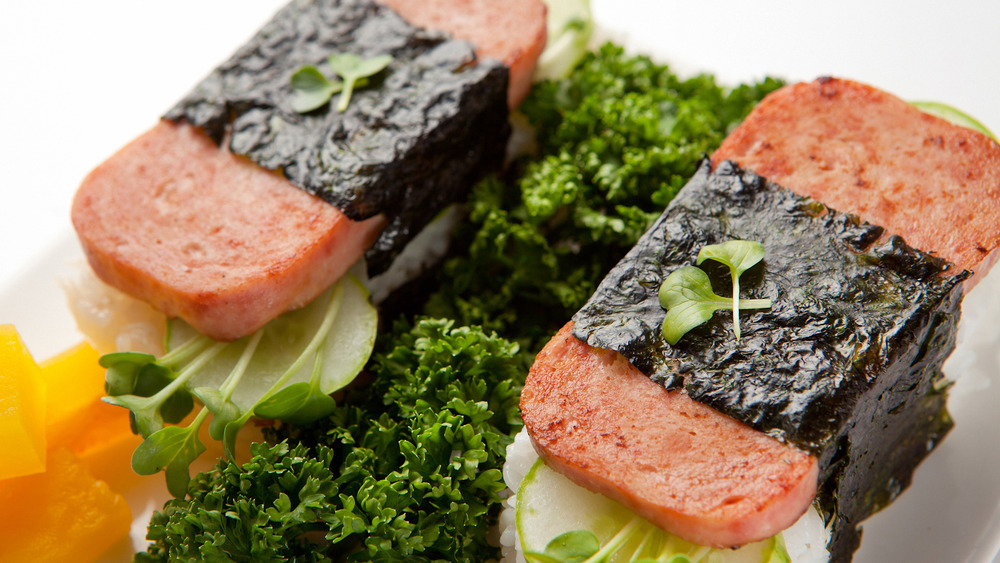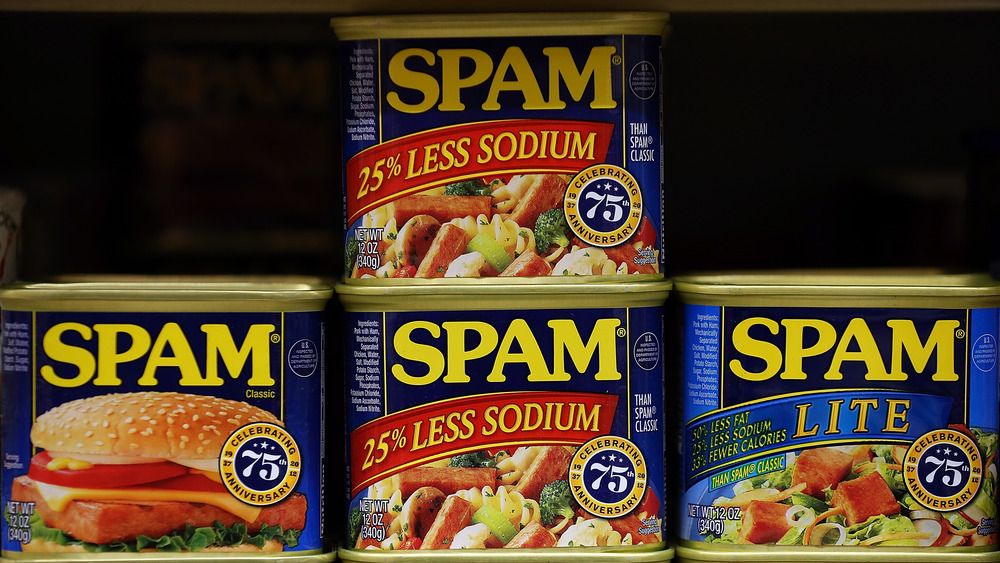The Real Reason Spam Is A Popular Gift In South Korea
It's easy to imagine that people have been holding Thanksgiving celebrations since humanity was knee-high to a Neanderthal. Perhaps back then, Ogg and his cave buddies gathered around a freshly cooked woolly mammoth and gave thanks for the discovery of fire or the fact that a saber-toothed tiger hadn't discovered them. Whatever the reason, whenever the season, each gratitude-infused festival or feast will be steeped in the historical and cultural context that helped create it. For instance, South Korea has an uncanny connection to Spam, so much so that as the BBC details, denizens give each other Spam as a gift during their lunar thanksgiving holiday, Chuseok.
Aso referred to as Hangawi, per Food52, Chuseok means "autumn eve" and has roots in traditional farming culture and is effectively a harvest moon festival. A highly prominent holiday, Chuseok is celebrated between late September and early October and entails visiting family, paying respect to ancestors, playing games, and, of course, showing you care by sharing the redundant-sounding "pork with ham" that's officially listed among the ingredients of Spam.
Lest you suspect that this is some small, convenient gesture meant in jest, it turns out that these meaty gifts don't just come wrapped in a can. They're given in swanky gift boxes – sometimes with bows – that enclose up to nine cans. Premium gift packages might sell for 75 bucks. Though, to South Koreans, Spam might be priceless. How did that come about? It all began with a costly conflict.
Heart and Seoul
PBS reports that many restaurant menus in the South Korean capital of Seoul serve an item called Military Stew, which contains Spam, ham, sausage, hot sauces, and kimchi. The name of the stew alludes to the Korean War, a conflict that featured mass abductions by Northern forces, a maniacal American spymaster who threw people off of planes, and a frigid battle in which Marines were saved from oblivion by Tootsie Rolls. The hell of war broke loose in 1950 and ceased in 1953 with an armistice. Amid the haze of horror and insanity, U.S. troops introduced Spam. Over time, it went from being something people needed to survive to become a food people deeply wanted in their lives.
Ingrained as a go-to food by the end of the 1980s, Spam has ascended to the status of a luxury item. Famous actors appear in ads with Spam, which undoubtedly hogs the spotlight. In 2015, NPR said South Korea was the second-biggest consumer of Spam on the planet. Hormel, the maker of Spam, can trace more than half its yearly Spam sales in South Korea to the gift boxes given during Chuseok and the Lunar New Year.
Fancy Spam is more than a gift – it's a feeling. Brand manager Shin Hyo Eun explained, "Anyone who gets a Spam gift-set also gets a warm feeling in their heart." It's obviously not limited to an affectionate ventricle either. South Korea loves Spam with all its heart and Seoul.

